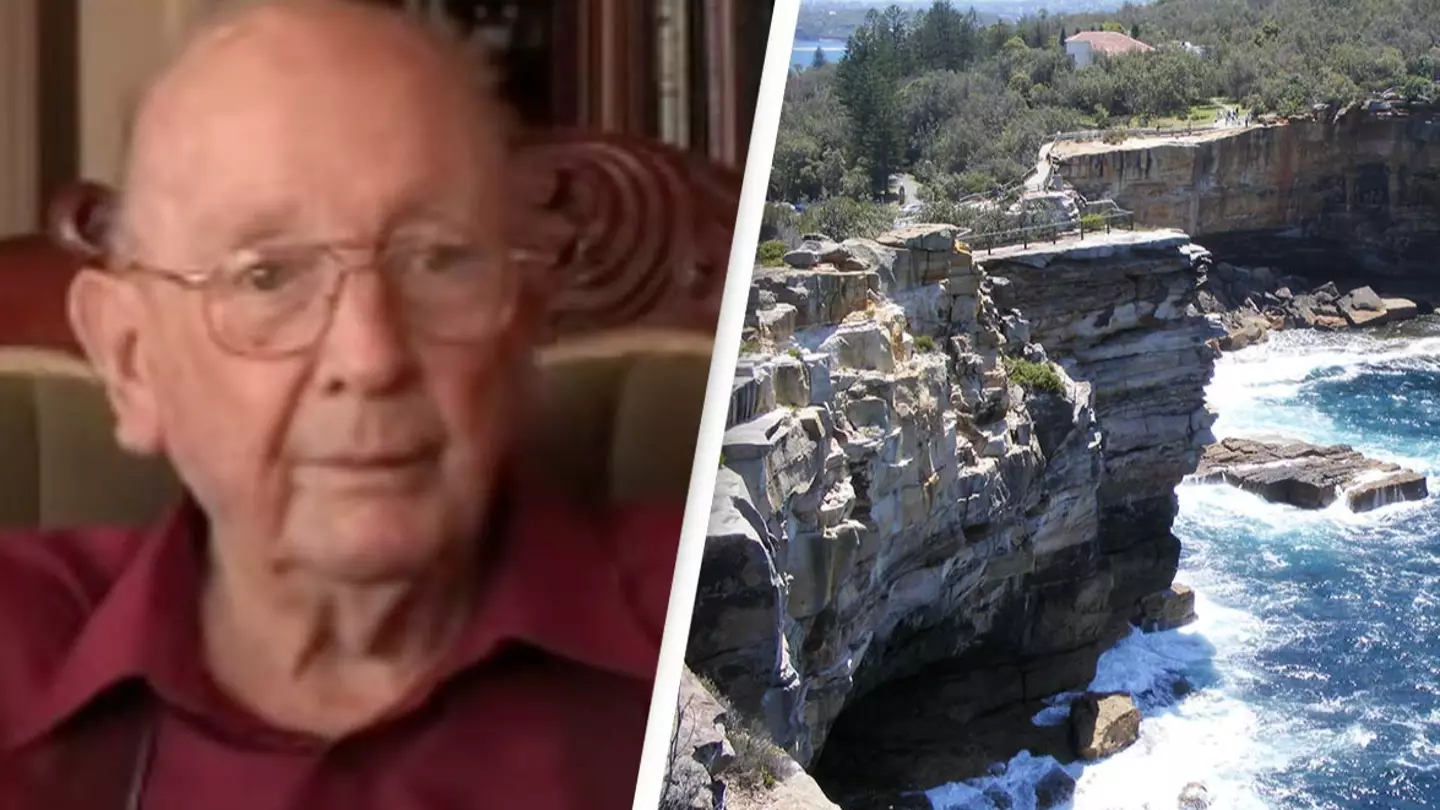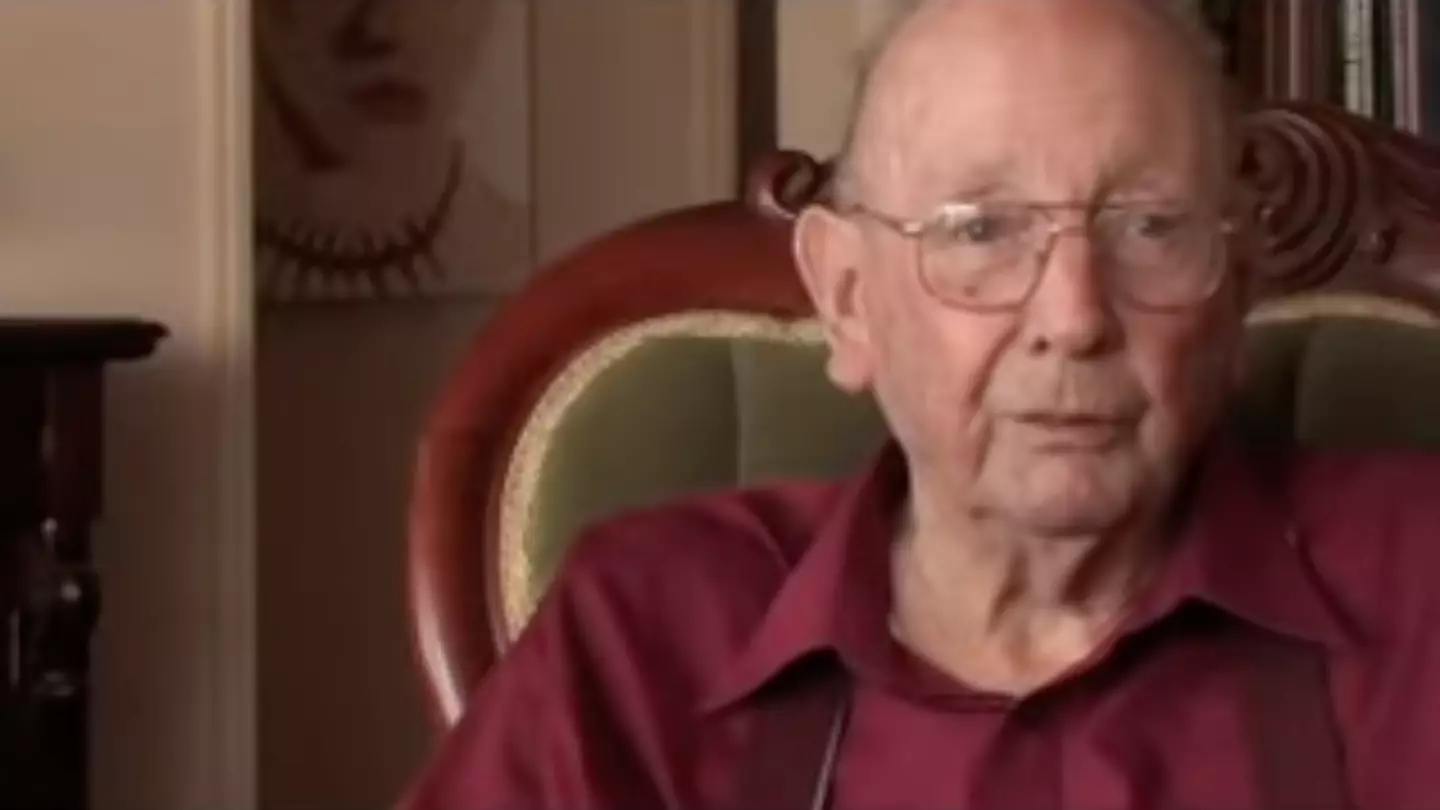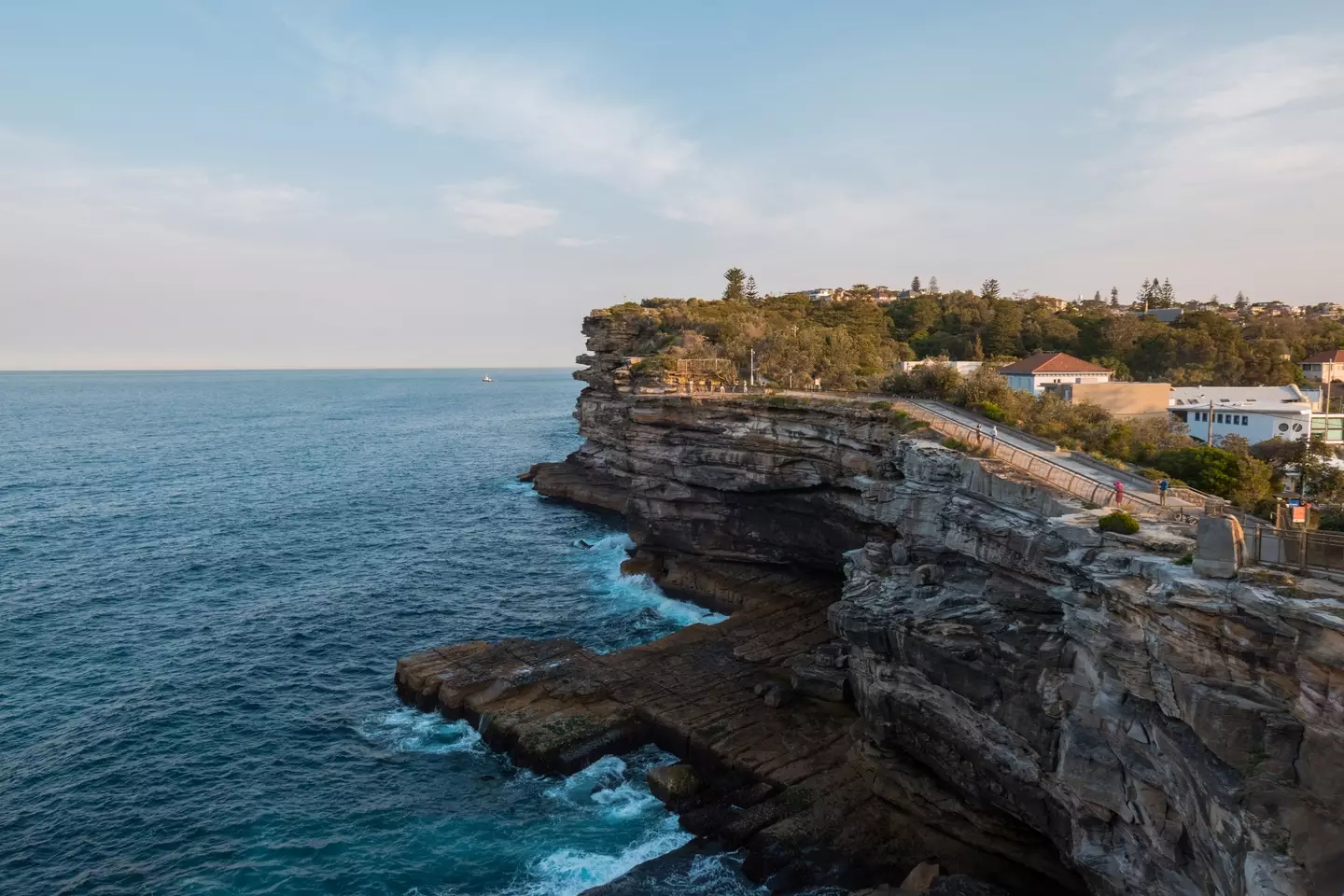
Warning - this article and the below video contain discussion of suicide. Discretion is advised.
A man who lived across the road from a cliff in Australia managed to save the lives of at least 160 people over the years, although the actual figure could be a whole lot more than that.
Don Ritchie was just an ordinary guy who happened to live in an extraordinary location.
Advert
The Aussie bloke happened to live just by a place called The Gap, which is a beauty spot at the top of a cliff at the entrance to Sydney Bay.
Much like other seemingly beautiful places like this, there was a dark side to the location, as it has become a place that sees a lot of people attempt to die by suicide.
It has been estimated that as many as 50 people each year attempt to throw themselves over the cliffs, but Ritchie did more than his part to reduce that figure during his lifetime.
If he saw someone walking up the cliff to the top, in some cases in a state of distress or looking as if they were considering jumping off, Don would rush out and ask them a seemingly innocuous question, asking them if they wanted to come into his house for a cup of tea or a beer.

He had no training whatsoever, no formal skills in the mental health world, but his kindness and humanity was such that most people would take him up on his offer, and he’d give everyone who accepted the time of day, with no prying, no advice, and no amateur psychology.
Advert
For a lot of these people, they just needed someone to lend an ear and show that they cared.
That meant that a lot of people ended up going back away from the cliff the way that they came, rather than the bleak alternative.
In a video, Don explained why he did what he did: “Over the years, whether it’s a 160 [people] or 260 or somebody talking about 400 the other night, I have spoken to many, many of them just that way, of [sic] saying, ‘What are you doing over here? Please, come and talk to me. Come over and have a cup of tea. Come and have a beer,’ or something like that.
“To get them away from their mind, away from going over [the cliff] while I’m there.
Advert
“And that’s the selling of the idea of coming over and talk about it. ‘Tell me why, what are you worried about?‘
“A big percentage of them came and talked to me.”
For 50 years, Don watched the cliff and helped hundreds of people at their lowest ebb.
Some left and never came back, others stayed in contact with Don and his wife, but that wasn’t what he was in it for.
Advert
In 2006, Don achieved recognition when he was awarded the Medal of the Order of Australia for ‘service to the community through programs to prevent suicide’.

He and his wife Moya were also named ‘Citizens of the Year’ in 2010 by Woollahra Council, the area’s local authority.
As well as that, he was named a ‘Local Hero’ in 2011.
Advert
Again, that wasn’t what he did it for, though.
In 2012, Don died at the age of 86, but his legacy remains.
During his time, he might not have saved everyone, but he did manage to save some people, and of that he could be very proud.
If you’ve been affected by any of these issues and want to speak to someone in confidence, please don’t suffer alone. Call Samaritans for free on their anonymous 24-hour phone line on 116 123
If you have experienced a bereavement and would like to speak with someone in confidence, contact Cruse Bereavement Care via their national helpline on 0808 808 1677
In the USA, you can call the 988 Suicide & Crisis Lifeline: The Lifeline provides free and confidential emotional support to people in suicidal crisis or emotional distress 24 hours a day, 7 days a week, across the United States.
Call or text 988 to connect with a trained crisis counselor. Support is also available via live chat at 988lifeline.org
Topics: Australia, Mental Health
